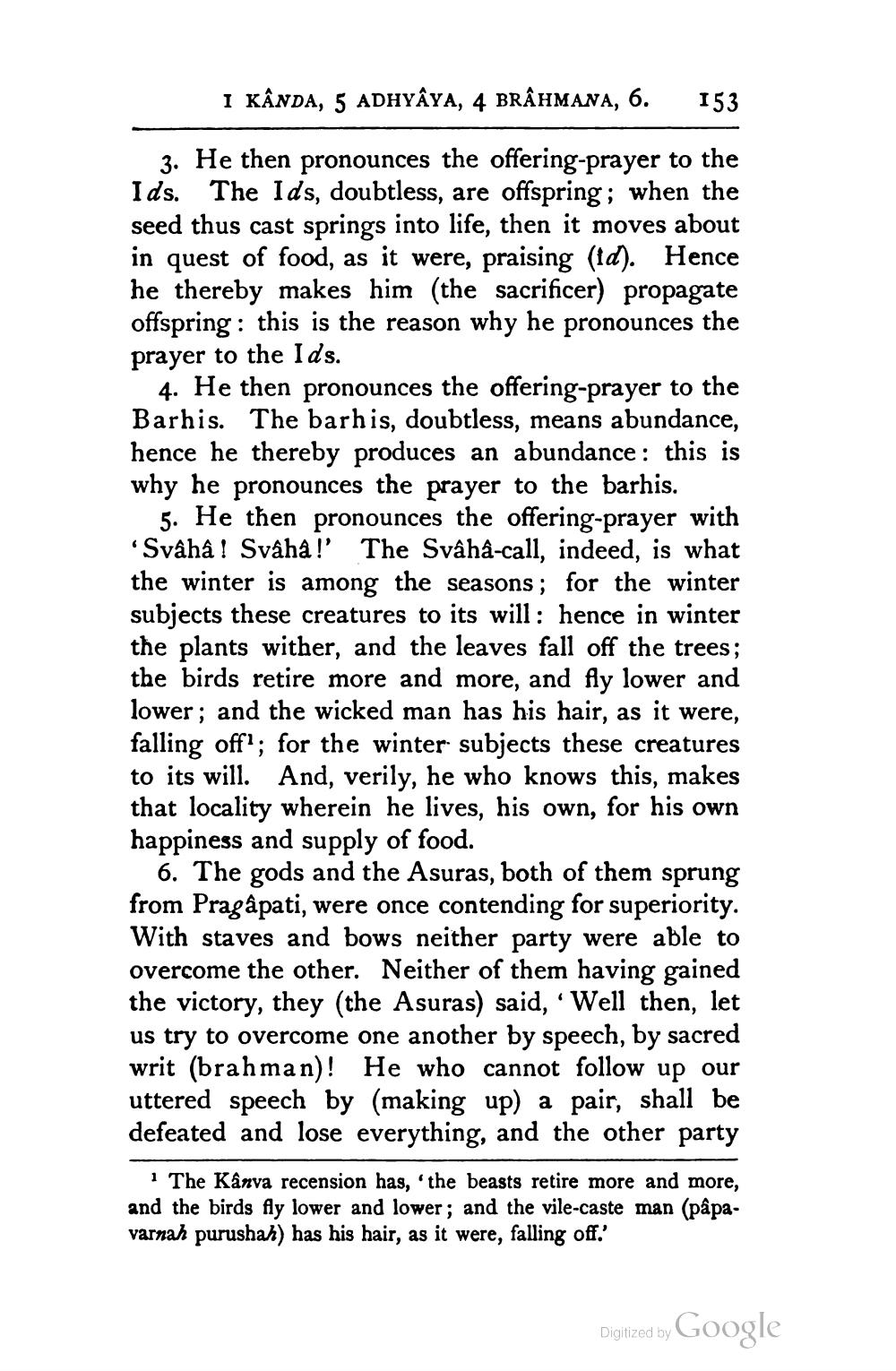________________
I KANDA, 5 ADHYAYA, 4 BRAHMANA, 6. 153
3. He then pronounces the offering-prayer to the Ids. The Ids, doubtless, are offspring; when the seed thus cast springs into life, then it moves about in quest of food, as it were, praising (td). Hence he thereby makes him (the sacrificer) propagate offspring: this is the reason why he pronounces the prayer to the Ids.
4. He then pronounces the offering-prayer to the Barhis. The barhis, doubtless, means abundance, hence he thereby produces an abundance: this is why he pronounces the prayer to the barhis.
5. He then pronounces the offering-prayer with 'Svâhâ! Svâhâ!' The Svâhâ-call, indeed, is what the winter is among the seasons; for the winter subjects these creatures to its will: hence in winter the plants wither, and the leaves fall off the trees; the birds retire more and more, and fly lower and lower; and the wicked man has his hair, as it were, falling off1; for the winter subjects these creatures to its will. And, verily, he who knows this, makes that locality wherein he lives, his own, for his own happiness and supply of food.
6. The gods and the Asuras, both of them sprung from Pragâpati, were once contending for superiority. With staves and bows neither party were able to overcome the other. Neither of them having gained the victory, they (the Asuras) said, 'Well then, let us try to overcome one another by speech, by sacred writ (brahman)! He who cannot follow up our uttered speech by (making up) a pair, shall be defeated and lose everything, and the other party
1 The Kânva recension has, 'the beasts retire more and more, and the birds fly lower and lower; and the vile-caste man (pâpavarnah purushah) has his hair, as it were, falling off."'
Digitized by
Google




